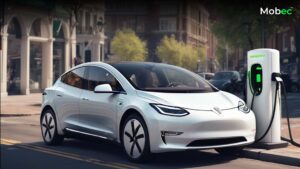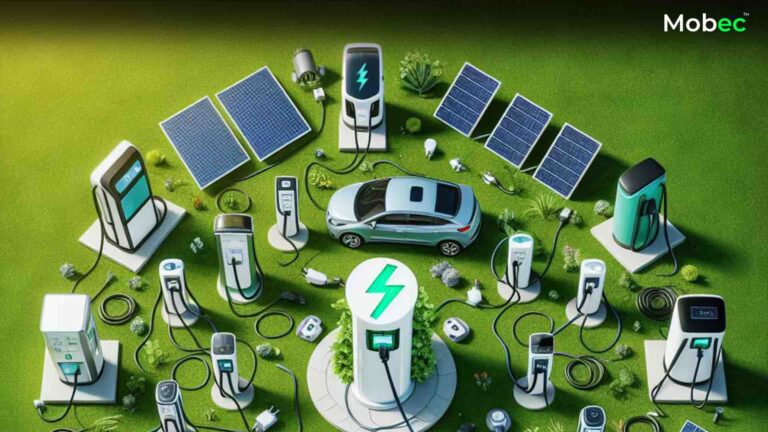The electric vehicle (EV) revolution is underway, and as the number of electric cars on the roads continues to rise, the need for a robust and accessible charging infrastructure becomes paramount. Dedicated charging stations for electric cars play a crucial role in supporting the widespread adoption of EVs, addressing concerns such as range anxiety and providing a convenient and efficient charging experience. In this comprehensive guide, we’ll delve into the importance of dedicated charging stations and how they contribute to the success of the electric vehicle ecosystem.
Overcoming Range Anxiety:

A. The Challenge of Range Anxiety:
Range anxiety, the fear of running out of battery power before reaching a charging station, has long been a significant barrier to the mass adoption of electric vehicles. Dedicated charging stations play a pivotal role in alleviating this anxiety by providing electric car owners with a reliable network of charging points strategically located in key areas.
- Strategic Placement for Accessibility:
Dedicated charging stations are strategically placed along highways, in urban centers, and at key destinations, ensuring that electric car owners have convenient access to charging infrastructure. This strategic placement minimizes the likelihood of range anxiety, enabling drivers to plan their routes with confidence, knowing that they can easily find a charging point when needed.
- Increasing Charging Station Density:
To further mitigate range anxiety, there is a need to increase the density of dedicated charging stations. This involves not only expanding the existing charging networks but also ensuring that charging stations are evenly distributed, especially in rural and less densely populated areas. A denser charging infrastructure provides electric car owners with more options and reduces the risk of encountering charging station congestion.
B. Fast-Charging Technology:
Dedicated charging points are equipped with fast-charging technology, significantly reducing the time it takes to recharge an electric vehicle. Unlike standard home outlets, which may take hours to charge a car fully, fast-charging stations can provide a substantial amount of charge in a matter of minutes.
- Enhanced Convenience for Electric Car Owners:
Fast-charging stations enhance the convenience of electric vehicle ownership by making charging more time-efficient. This is particularly crucial for those who rely on their vehicles for daily commuting or business purposes, as well as for long-distance travelers who need quick top-ups to reach their destinations.
- Long-Distance Travel Facilitation:
Dedicated fast-charging stations along highways facilitate long-distance travel for electric car owners. The ability to recharge quickly at these stations makes electric vehicles a practical and viable option for road trips, addressing one of the key concerns that have traditionally favored internal combustion engine vehicles for long journeys.
Public and Workplace Charging:

A. Supporting Urban Electric Vehicle Ownership:
Dedicated charging stations in urban areas are essential for supporting electric vehicle ownership in cities. Public charging points installed in parking lots, shopping centers, and other high-traffic locations contribute to the accessibility of charging infrastructure for urban dwellers who may not have the option of charging at home.
- Encouraging Sustainable Transportation Choices:
By providing convenient and accessible charging options in urban centers, dedicated charging stations play a role in encouraging the adoption of electric vehicles as a sustainable mode of transportation. This, in turn, contributes to reducing air pollution and lowering the overall carbon footprint of urban commuting.
- Workplace Charging Stations:
Employers are increasingly recognizing the importance of supporting electric vehicle adoption among their employees. Workplace charging stations offer a convenient charging solution for electric car owners during working hours, further integrating electric vehicles into the daily lives of individuals.
B. Promoting Sustainable Tourism:
Tourist destinations and recreational areas are ideal locations for dedicated charging stations. These charging points encourage sustainable tourism by catering to electric car owners exploring scenic routes and attractions. Destination charging also extends the benefits of electric vehicle ownership to tourists, contributing to the growth of eco-friendly travel.
- Hotel and Restaurant Charging:
Installing dedicated charging stations at hotels and restaurants is a strategic move to attract environmentally conscious travelers. Electric car owners are more likely to choose establishments that offer charging infrastructure, promoting longer stays and contributing to the overall appeal of sustainable tourism.
- Supporting Local Businesses:
The presence of dedicated charging stations at local businesses can create a positive impact on the community. Electric car owners, while charging their vehicles, may patronize nearby establishments, contributing to the economic growth of local businesses and fostering a sense of community support.
Integration with Renewable Energy:

A. Sustainable Power for Charging Stations:
The environmental benefits of electric vehicles extend beyond zero tailpipe emissions; they also depend on the sustainability of the energy used to charge them. Dedicated charging stations have the potential to further enhance the eco-friendliness of electric vehicles by integrating renewable energy sources.
- Solar-Powered Charging Stations:
Solar-powered charging stations harness the energy of the sun to generate electricity for charging electric vehicles. This approach reduces the carbon footprint associated with the charging process and promotes the use of clean, renewable energy. Solar-powered charging points are particularly effective in sunny regions, offering an environmentally friendly and sustainable solution.
- Wind-Powered Charging Solutions:
Wind turbines can be integrated into charging stations, utilizing wind energy to generate electricity. Wind-powered charging solutions contribute to the diversification of renewable energy sources and offer a reliable and sustainable option for powering dedicated charging points.
B. Energy Storage and Grid Integration:
Dedicated charging stations can enhance their sustainability by incorporating energy storage solutions, such as batteries. These batteries can store excess energy generated during periods of high renewable energy production and release it during peak demand or when renewable energy generation is low.
- Grid Integration and Smart Charging:
Smart grid technologies enable dedicated charging stations to communicate with the electrical grid, optimizing the use of renewable energy. Smart charging solutions can prioritize the use of clean energy sources when available, contributing to grid stability and reducing reliance on non-renewable power.
Economic Incentives and Government Support:
A. Financial Incentives for Charging Infrastructure:
Governments play a crucial role in promoting the development of dedicated charging stations through financial incentives and supportive policies. These incentives encourage businesses and entrepreneurs to invest in charging infrastructure, expanding the network and making electric vehicles more appealing to consumers.
- Tax Credits and Grants:
Government tax credits and grants for the installation of charging stations incentivize private businesses and individuals to contribute to the growth of charging infrastructure. These financial incentives make it more economically viable for entrepreneurs to establish charging points, particularly in areas where the demand for electric vehicles is on the rise.
- Public-Private Partnerships:
Collaboration between the public and private sectors is essential for the widespread deployment of dedicated charging stations. Public-private partnerships leverage government support and private sector efficiency, resulting in the development of a comprehensive and accessible charging infrastructure.
B. Incentives for Workplace Charging:
In addition to supporting public charging networks, governments can provide incentives for employers to install workplace charging stations. These incentives may include tax credits, grants, or other financial support, encouraging businesses to contribute to the growth of charging infrastructure.
- Environmental and Sustainability Certification:
Governments can also introduce certification programs that recognize and reward businesses for their commitment to sustainability through the installation of dedicated charging stations. These certifications not only promote environmental responsibility but also enhance the public image of businesses adopting eco-friendly practices.
Technological Advancements and Future Developments:
A. Wireless Charging Technology:
The future of dedicated charging stations holds exciting possibilities with the ongoing development of wireless charging technology. Wireless charging eliminates the need for physical cables, offering a more convenient and user-friendly experience for electric vehicle owners.
- Inductive Wireless Charging:
Inductive wireless charging uses electromagnetic fields to transfer energy between the charging station and the electric vehicle. As this technology advances, it has the potential to become a standard feature in dedicated charging points, simplifying the charging process and further promoting the adoption of electric vehicles.
B. Ultra-Fast Charging Stations:
The evolution of charging technology is heading towards ultra-fast charging stations capable of delivering over 300 kW of power. These stations aim to reduce charging times significantly, making electric vehicles even more competitive with traditional internal combustion engine vehicles in terms of refueling speed.
- 800V Charging Systems:
The adoption of 800-volt charging systems by some electric vehicles represents a step towards ultra-fast charging. These systems allow for faster charging without increasing the current, paving the way for more efficient and rapid charging experiences for electric car owners.
Conclusion:
Dedicated charging stations for electric cars are not just a convenience; they are a cornerstone of the electric vehicle revolution. By addressing concerns like range anxiety, providing convenient access in urban and rural areas, and integrating with renewable energy sources, these charging stations play a vital role in making electric vehicles a practical and sustainable choice for consumers. As technology continues to advance and governments and businesses invest in charging infrastructure, the importance of dedicated charging points will only grow, ushering in a new era of clean and efficient transportation. The electric future is not just on the horizon; it’s already charging up at dedicated stations around the world, ready to power the vehicles that will drive us towards a more sustainable tomorrow.





















[…] […]